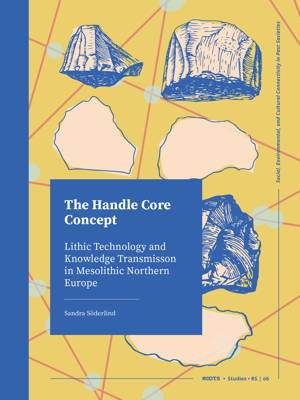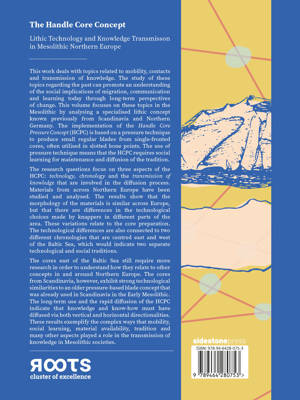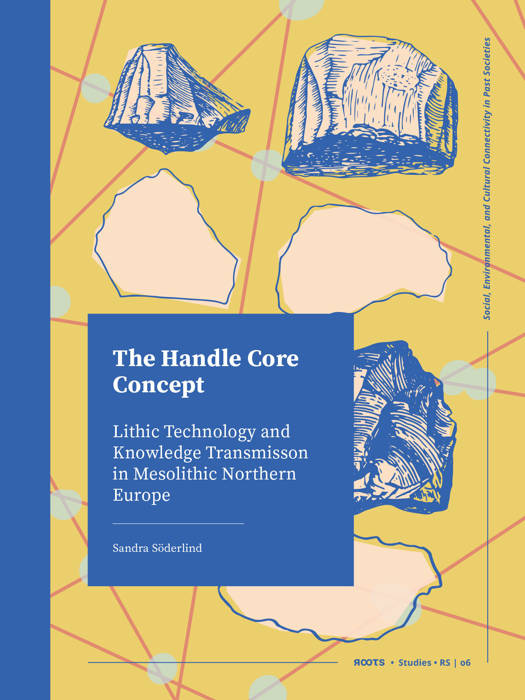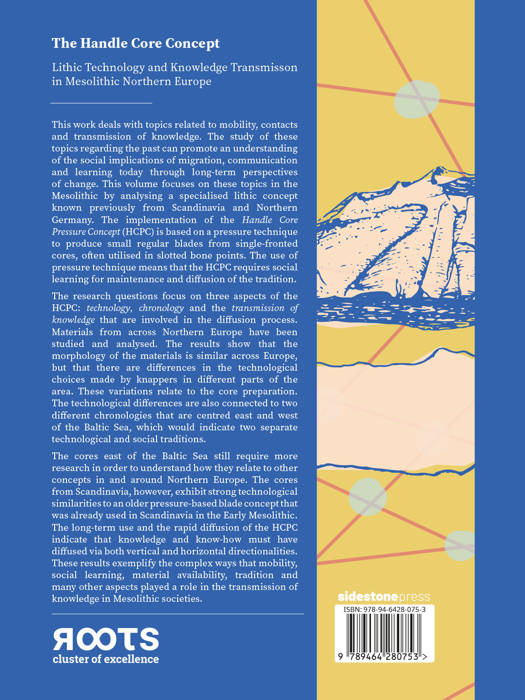
- Retrait gratuit dans votre magasin Club
- 7.000.000 titres dans notre catalogue
- Payer en toute sécurité
- Toujours un magasin près de chez vous
- Retrait gratuit dans votre magasin Club
- 7.000.0000 titres dans notre catalogue
- Payer en toute sécurité
- Toujours un magasin près de chez vous


99,45 €
+ 198 points
Description
This work deals with topics related to mobility, contacts and transmission of knowledge. The study of these topics regarding the past can promote an understanding of the social implications of migration, communication and learning today through long-term perspectives of change. This volume focuses on these topics in the Mesolithic by analyzing a specialized lithic concept known previously from Scandinavia and Northern Germany. The implementation of the Handle Core Pressure Concept (HCPC) is based on a pressure technique to produce small regular blades from single-fronted cores, often utilized in slotted bone points. The use of pressure technique means that the HCPC requires social learning for maintenance and diffusion of the tradition.
The research questions focus on three aspects of the HCPC: technology, chronology and the transmission of knowledge that are involved in the diffusion process. Materials from across Northern Europe have been studied and analyzed. The results show that the morphology of the materials is similar across Europe, but that there are differences in the technological choices made by knappers in different parts of the area. These variations relate to the core preparation. The technological differences are also connected to two different chronologies that are centered east and west of the Baltic Sea, which would indicate two separate technological and social traditions.
The cores east of the Baltic Sea still require more research in order to understand how they relate to other concepts in and around Northern Europe. The cores from Scandinavia, however, exhibit strong technological similarities to an older pressure-based blade concept that was already used in Scandinavia in the Early Mesolithic. The long-term use and the rapid diffusion of the HCPC indicate that knowledge and know-how must have diffused via both vertical and horizontal directionalities. These results exemplify the complex ways that mobility, social learning, material availability, tradition and many other aspects played a role in the transmission of knowledge in Mesolithic societies.
The research questions focus on three aspects of the HCPC: technology, chronology and the transmission of knowledge that are involved in the diffusion process. Materials from across Northern Europe have been studied and analyzed. The results show that the morphology of the materials is similar across Europe, but that there are differences in the technological choices made by knappers in different parts of the area. These variations relate to the core preparation. The technological differences are also connected to two different chronologies that are centered east and west of the Baltic Sea, which would indicate two separate technological and social traditions.
The cores east of the Baltic Sea still require more research in order to understand how they relate to other concepts in and around Northern Europe. The cores from Scandinavia, however, exhibit strong technological similarities to an older pressure-based blade concept that was already used in Scandinavia in the Early Mesolithic. The long-term use and the rapid diffusion of the HCPC indicate that knowledge and know-how must have diffused via both vertical and horizontal directionalities. These results exemplify the complex ways that mobility, social learning, material availability, tradition and many other aspects played a role in the transmission of knowledge in Mesolithic societies.
Spécifications
Parties prenantes
- Auteur(s) :
- Editeur:
Contenu
- Nombre de pages :
- 406
- Langue:
- Anglais
- Collection :
Caractéristiques
- EAN:
- 9789464280753
- Date de parution :
- 14-01-25
- Format:
- Livre broché
- Format numérique:
- Trade paperback (VS)
- Dimensions :
- 210 mm x 279 mm

Les avis
Nous publions uniquement les avis qui respectent les conditions requises. Consultez nos conditions pour les avis.







